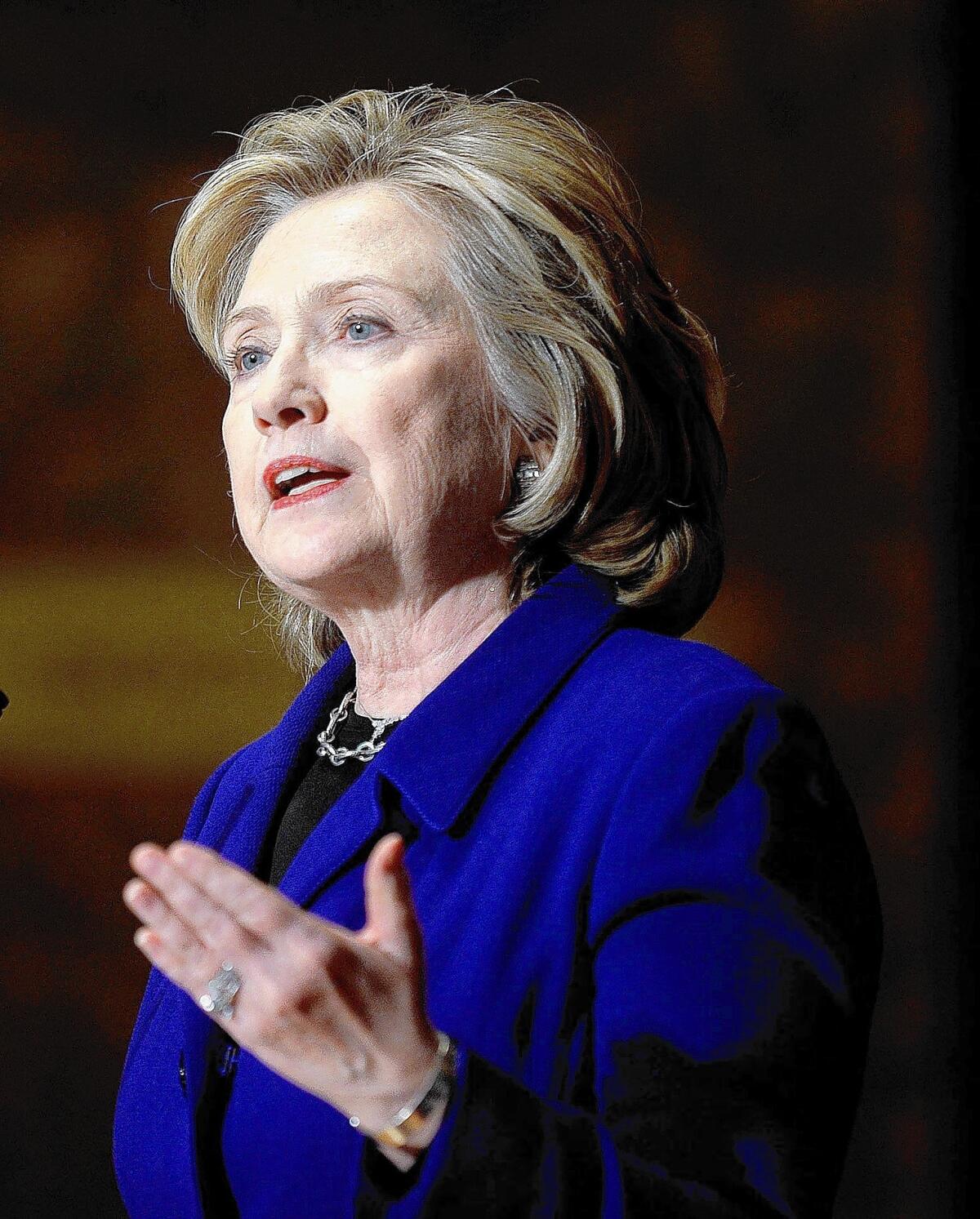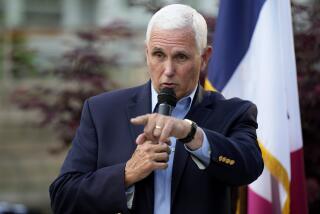Papers offer peek into Hillary Clinton’s failed healthcare initiative

WASHINGTON — As Hillary Rodham Clinton sought to reshape the nation’s healthcare system in her husband’s first term as president, she got all the right advice from senior aides: Consult closely with members of Congress, build bridges with business leaders, communicate clearly to nervous voters, move swiftly.
The first lady and her husband ultimately failed in nearly all those efforts, nearly sinking Bill Clinton’s presidency.
Thousands of documents released Friday, which detail that failure as well as other policy disputes of the Clinton White House, provide new details on what remains one of the defining chapters in Hillary Clinton’s career. The papers also foreshadow the challenges the Obama administration would encounter as the current president worked to pass the Affordable Care Act 16 years later.
Nervous and egotistic members of Congress, difficult policy issues such as whether individuals should be required to buy insurance, and worries that the administration might be promising more than it could deliver all feature prominently in the documents, released Friday by the National Archives.
So, too, does a steady current of concern by White House staffers over the arcane policy as well as the process that the first lady had established.
“By far the biggest problem is the complexity,” White House advisor Mike Lux noted in a January 1994 memo. “The complexity of the bill is not only confusing, but frightening.”
The roughly 4,000 pages of documents — the first of as many as 33,000 pages scheduled to be released in the next several weeks — do not appear to contain bombshell revelations. The papers had been sealed for more than 12 years under the Presidential Records Act, which allows certain memos to be withheld if they contain confidential advice or information related to federal appointments.
The ardor with which both Republican and Democratic operatives dissected them testified to how much the 2016 presidential election already has come to focus on Clinton’s so-far-undeclared candidacy.
The documents clearly illustrate the central role that she played in advancing what was her husband’s top priority after he took office in 1993. As first lady, Clinton led a massive task force to draft a plan to build a new health insurance system to control costs and expand coverage.
Clinton’s advisors repeatedly warned her that the White House should be deferential to Congress.
“All within the administration must, therefore, understand that it is the Hill that controls the agenda for legislative activity on health care and their vision for how best to accomplish our goal of passing health care this year should and will prevail,” aides Chris Jennings and Steve Ricchetti cautioned in April 1993.
Bill and Hillary Clinton held numerous meetings with lawmakers through 1993 and 1994, the documents show.
Before many of the sessions, White House aides advised them how to stroke egos, noting that many lawmakers, including Republicans, wanted a healthcare bill.
“There is a significant number of Republicans who sincerely want to participate in shaping the response to the health care crisis,” Jennings told the first lady in May 1993 before a lunch with GOP leaders. Then-Senate Republican leader Bob Dole of Kansas was pressuring his members not to work too closely with the White House, aides noted in several memos — another foretaste of what President Obama would encounter in 2009 and 2010.
Through 1993, the first lady’s healthcare effort was increasingly seen as secretive, unworkable and behind schedule, aides warned. The White House’s legislative affairs chief, Howard Paster, noted in one memo that members of Congress were “petrified” by the issue.
Against that backdrop, the documents indicate, the Clinton White House struggled to figure out how to even talk about what it was doing.
In one memo before President Clinton’s 1994 State of the Union address, an aide identified only as “Todd” fretted that the president might be misleading Americans by claiming that they could pick their doctors under the healthcare proposal. “I am very worried about getting skewered for over-promising here on something we know full well we won’t deliver,” he wrote.
Obama has run into a similar problem selling his healthcare law, which he promised would allow all Americans to keep their health plans. Many plans have been changed or canceled since the law was enacted, forcing consumers to select new plans that may not include the same doctors.
The Clinton documents show the healthcare overhaul plan collapsing through 1993 and 1994, as lawmakers, business leaders and even grass-roots Democratic groups lost faith in the administration’s efforts.
In one meeting with lawmakers, a participant complained to the first lady about the “veil of secrecy” surrounding the plan and the difficulty lawmakers had in getting a draft that had been leaked to the Washington Post and the New York Times. The first lady told Democratic leaders that the administration was “very serious about consultations,” notes from the meeting show.
In another memo, White House aide Lux, who oversaw the White House outreach efforts, noted that “the lack of trust we talked about the other night does have a real impact on groups’ willingness to go to the mat for us.”
By August 1993, Jennings advised Hillary Clinton that even then-Los Angeles Rep. Henry A. Waxman, a liberal Democrat whom Jennings described as the senior lawmaker “most openly supportive” of the administration’s initiative, was losing faith.
“His confidence has been shaken,” Jennings noted.
The healthcare effort ultimately died in 1994 without a congressional vote.
The documents also show Hillary Clinton’s staff and advisors wrestling with subjects that would continue to be issues in her in future campaigns. In one 1999 memo, for example, Mandy Grunwald, a longtime Clinton aide, offered advice in dealing with reporters.
“Don’t be defensive,” Grunwald advised. “Look like you want the questions. Even on the annoying questions, give relaxed answers.
“Look for opportunities for humor,” the memo added. “It’s important that people see more sides of you, and they often see you only in very stern situations.
“Be careful to ‘be real.’”
Levey and Lauter reported from Washington and Reston reported from Los Angeles.
More to Read
Start your day right
Sign up for Essential California for news, features and recommendations from the L.A. Times and beyond in your inbox six days a week.
You may occasionally receive promotional content from the Los Angeles Times.









